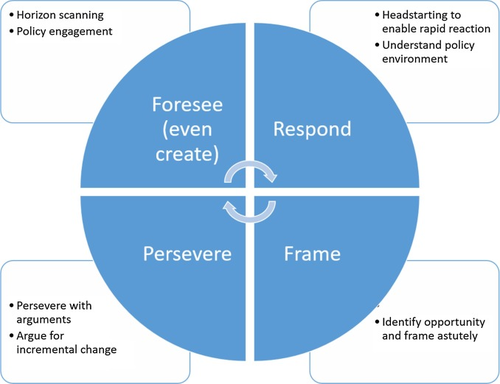
A new EU BON derived paper looks at the dynamics of science - policy dialogue, offering tips for improving the uptake of scientific knowledge.
Scientific knowledge is considered to be an important factor (alongside others) in environmental policy-making. However, the opportunity for environmentalists to influence policy can often occur within short, discrete time windows. Therefore, a piece of research may have a negligible or transformative policy influence depending on when it is presented.
These ‘policy windows’ are sometimes predictable, such as those dealing with conventions or legislation with a defined renewal period, but are often hard to anticipate. We describe four ways that environmentalists can respond to policy windows and increase the likelihood of knowledge uptake: 1) foresee (and create) emergent windows, 2) respond quickly to opening windows, 3) frame research in line with appropriate windows, and 4) persevere in closed windows. These categories are closely linked; efforts to enhance the incorporation of scientific knowledge into policy need to harness mechanisms within each.
In their new reseach the authors illustrate the main points with reference to nature conservation, but the principles are widely applicable. The open access paper is available here: http://www.sciencedirect.com/science/article/pii/S1462901117302095
Read also the article published on it by the British Ecological Society: http://www.britishecologicalsociety.org/windows-opportunity-influence-policy-four-tips-improve-uptake-scientific-knowledge/





 RSS news
RSS news Print this article
Print this article
